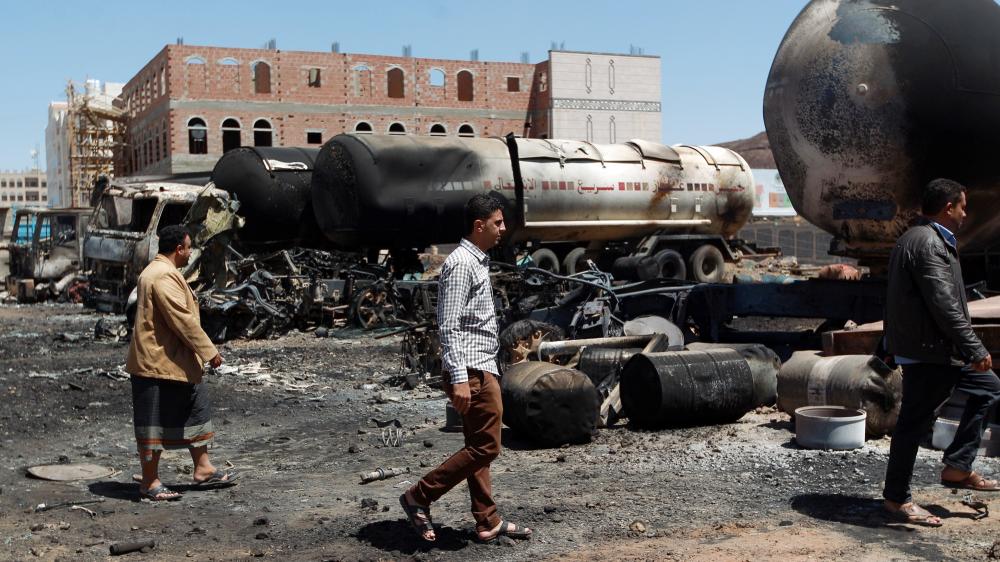The current upheaval in Yemen is a sharp reminder of the fragility of the global oil market. Airstrikes by Saudi Arabia against Houthi rebels in Yemen has stoked fears of a disruption to the supply market.
Yemen and Saudi Arabia, the world’s largest oil producer, share a long border. While Yemen is only a small producer of crude oil, it controls the Bab el-Mandeb Strait at the southern entrance to the Red Sea.
More than 3.8 million barrels a day pass through the strait, which is considered a critical choke point for crude oil supply.
After the Saudi Arabian-led air campaign began Thursday local time, oil prices spiked nearly 5 percent because of fears that ships carrying crude would have to divert if the Bab el-Mandeb Strait closed due to the fighting.
But less oil goes through these sea lanes than through the Strait of Hormuz at the entrance to the Persian Gulf, according to Foreign Policy. Goldman Sachs said the bombing of Yemen would have little effect on oil supplies because tankers could avoid passing its waters to reach their ports of destination, according to Reuters.
The price of oil dipped Friday, despite another round of airstrikes against Houthi rebels by Saudi Arabia and its Arab allies.
Still, the upheaval in Yemen has hit the country’s oil industry hard, according to The Wall Street Journal, forcing companies to abandon productive oil patches evacuate staff.
It’s not surprising oil prices dipped after again as the global market remains oversupplied. But a bigger impact could come from a nuclear deal with Iran, which could lead to a loosening of crippling sanctions, raising exports of the country’s oil reserves.
Iran has around 30 million barrels stored offshore ready for sale, oil that could flood an already saturated market, according to Reuters.
9(MDA3MTA1NDEyMDEyOTkyNTU3NzQ2ZGYwZg004))
